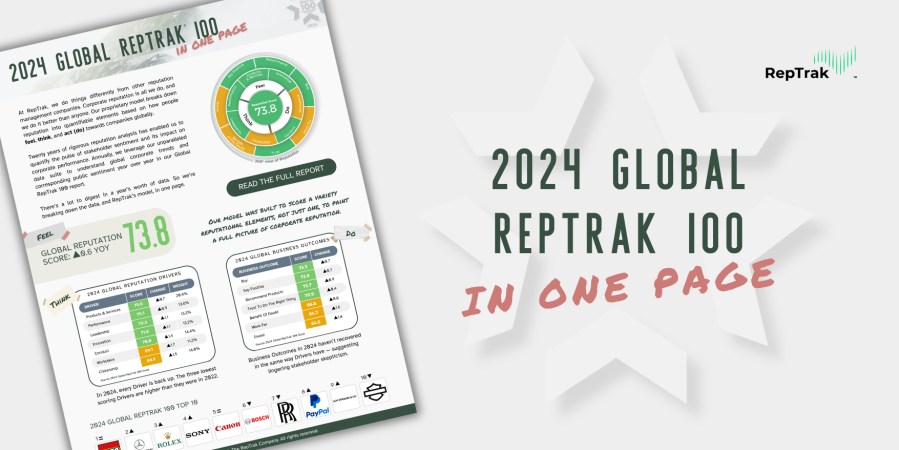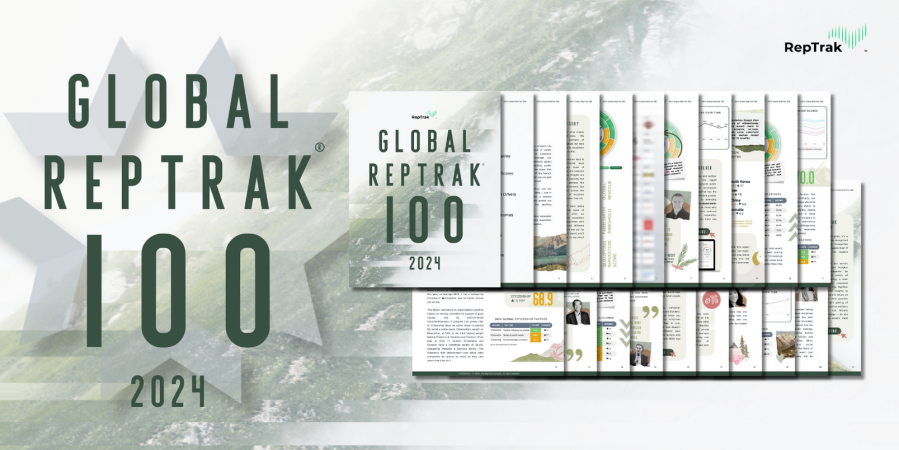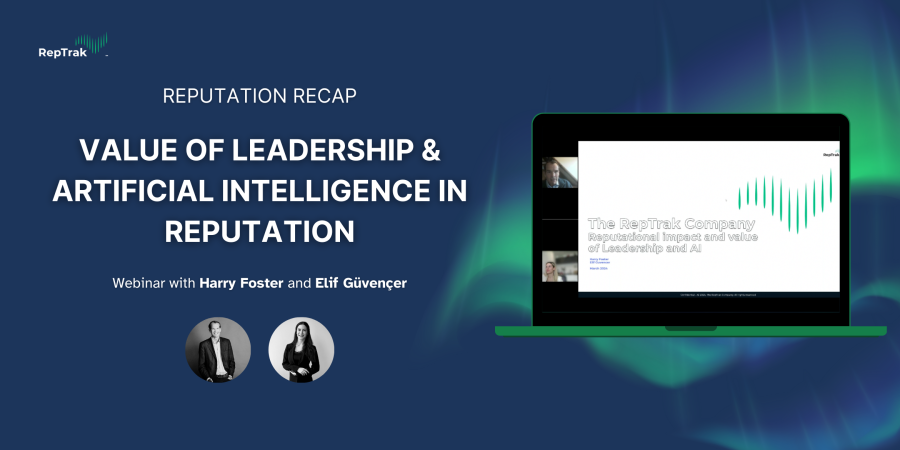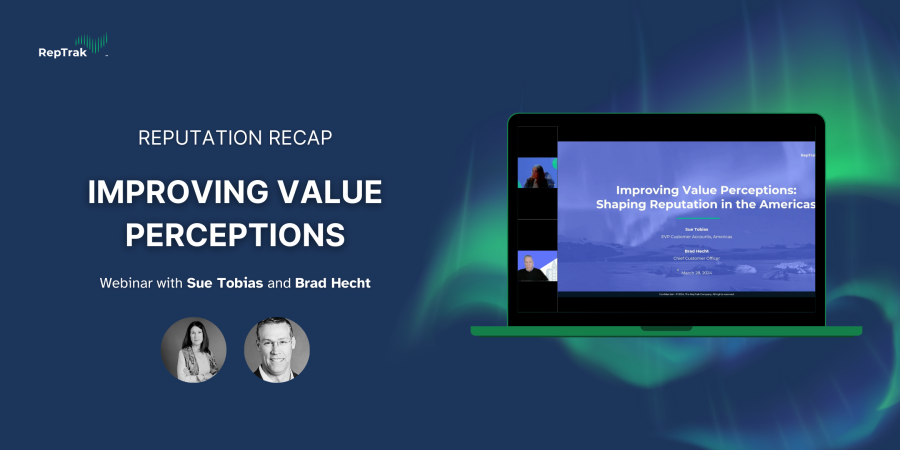The Business Case for Reputation
Blog Post21 Aug, 2018
Simply stated: reputation enhances business. This is not a bold claim—it’s a fact.
Business is better when more people want to buy from, invest in, and work for your company. Appealing to these different stakeholder groups (customers, investors, employees, among others) and knowing which ones are most impactful in which global market is the work of strategic corporate reputation. Companies with strong reputations leverage stakeholder support to outshine the competition and reap revenue rewards.
Reputation is an economic multiplier and there are a variety of ways in which Reputation Intelligence—the monitoring, measurement, and management of reputation—drives returns and makes companies better.
5 ways reputation impacts business ROI
1. Reputation enhances company value. Quarterly and annual profits are one way to value a company, but when it comes to total market value, intangibles like reputation become more critical. Intangible value makes up 81% of market value.
Yes, really.
Since 2006, a strong reputation yields 2.5 times better stock performance when compared to the overall market. And a 1-point increase in reputation yields a 2.6% increase in market cap – this translates into an average of $1 billion.
2. Reputation underscores stakeholder support. We define reputation as the emotional connection a stakeholder has with a company (industry, CEO, country, or city).
Stakeholders – employees, customers, government officials, stockholders – can be your biggest ambassadors or your biggest detractors. Reputation shapes the behavioral intent of stakeholders. The higher its reputation, the more likely people will buy from, invest in, work for, and recommend a company. To ensure there are more cheers than jeers, reputation measurement is a must in establishing and maintaining stakeholder support.
3. Reputation elevates growth. The most reputable companies enjoy higher purchase consideration, sales, and loyalty.
For each 5-point RepTrak score improvement, there is a 6.3% increase in the propensity to buy from a business and a 5.7% increase in Advocacy. Customers are more likely to recommend companies with stronger reputations.
Moreover, when a reputation improves from average to excellent in rating, there’s a 2.7x increase in purchase intent.
4. Reputation influences existing and potential employees. Want to recruit and retain the best and brightest? Look to your reputation score.
Reputation shapes public perception of a company as being an Employer of Choice. Fifty-seven percent of the general public would work for a company with an excellent reputation. When a company’s reputation shifts from a rating of average to excellent, there’s a 3.0x increase in a willingness to work for that company.
5. Reputation mitigates corporate risk. Bad things happen to good businesses every day: CEOs falter, employees make poor decisions, stock prices decline, public relations and social media mishaps are commonplace.
Yet, 63% of the general public give companies with excellent reputations the benefit of the doubt in times of crisis. These same companies are also 3.2x more likely to be trusted to manage a crisis than companies with average reputation scores. The result? Reputation acts as an insurance policy against disaster and it pays to have a strong or excellent corporate reputation.
Reputation builds trust equity
Reputation creates business sustainability and builds trust equity. A company shift from an average to excellent reputation score yields a 3.2x increase in trust.
These intangibles are quantifiable, and they must be measured to inform better and more strategic business decisions. Reputation creates a focus that enhances business success.
Melanie LoBue Global Director of Marketing The RepTrakCompany @melanielobue [email protected]





